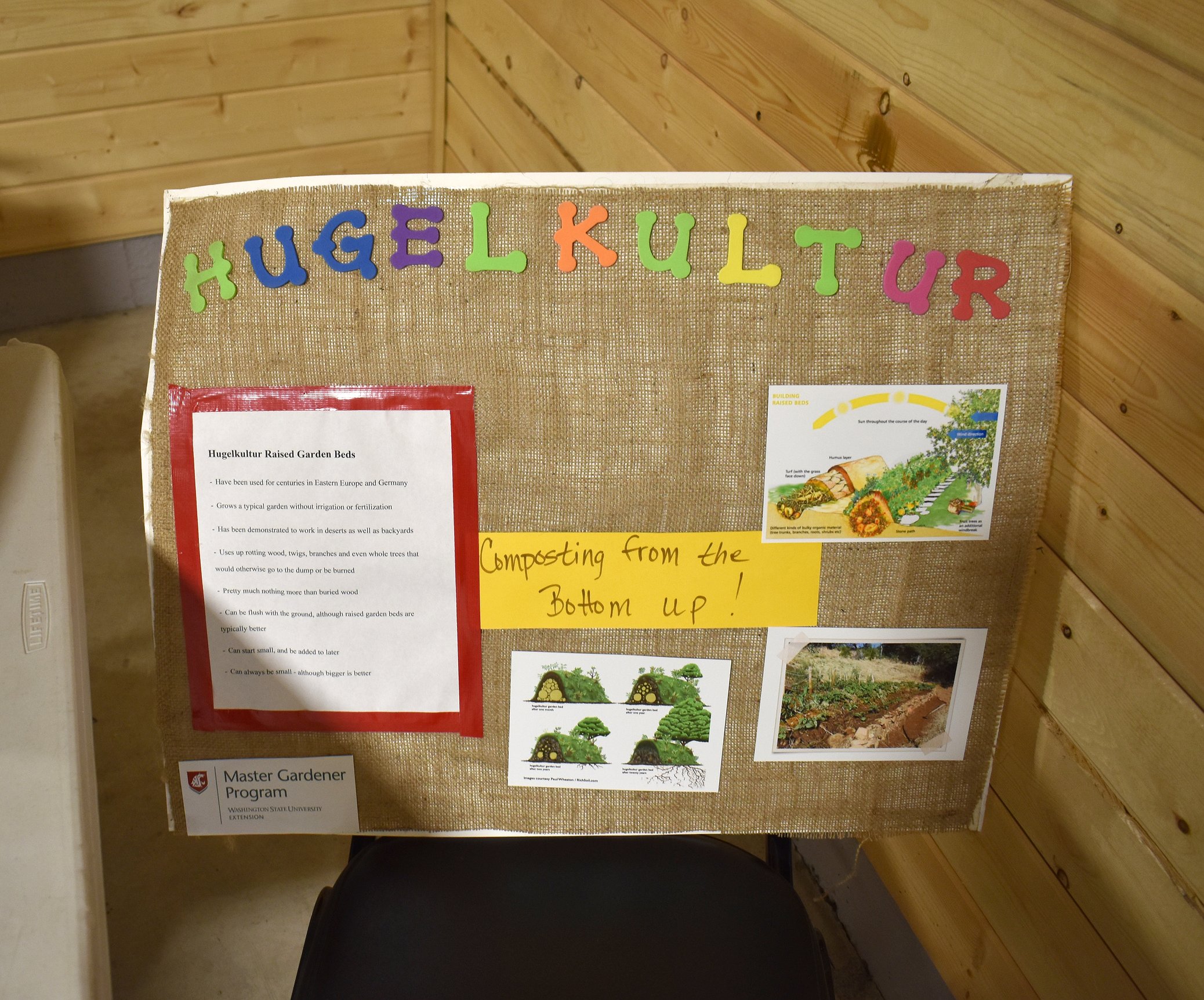Master Gardener plant clinic gives home gardeners a little inside knowledge
MOSES LAKE — The WSU Grant-Adams County Master Gardeners have been at the Grant County Fair this week, answering questions from the public and offering tips for more eco-friendly gardening.
They weren’t quite as busy this year as last, said Mary Love, who was staffing the booth with Bobbie Bodenman, because the weather wasn’t as hot.
“Last year, people came in and they went ‘whew!’ and they were looking for excuses to stay,” Love said. “They would come over here and they’d think of something to ask us so they could stay (in the air conditioning) longer.”
The master gardeners were ready to answer questions of all kinds and had displays about worm composting, sheet composting and something called Hugelkultur, a method of growing a garden without irrigation or fertilization that’s popular in Germany and Eastern Europe. They also had lots of information about bees and how to encourage bee-friendly plants.
“These are from the (Washington State) Noxious Weed Board, and we give them out,” Love said, holding up a seed packet. “These are flowers that pollinators like … We’re trying to make sure that we still have bees. It’s pretty important for our food supply, and flowers too.”
The packets contained seeds for blanketflower, arrowleaf balsamroot, wild sunflowers and purple prairie clover, among other plants. The blend of plants, called “Bee-U-tify,” was specially designed for eastern Washington, the packet proclaimed.
Gardening with limited water is an important focus of the Master Gardener program in this area, and master gardeners have given symposia the last couple of years on how to reduce or eliminate water use in a garden, using plants that are native to our desert climate. That was something that was on Carmen Rimple’s mind when she stopped by the booth.
“Is there native grass that I can plant in my yard instead of the regular lawn?” Rimple asked. She had already stripped out her front lawn down to plain dirt, she added.
“I have 8-foot basalt columns, like five or six of them, and I put out a big old hill of dirt mixture so my grandson can play on it,” Rimple said. “I’ve got little basins that collect water. So there’s lots of stuff I could do. I don’t want to just plant grass.”
“I’ve got good news for you,” Love said. “Columbia Basin Conservation District, they have a gal (who) does design. At no cost to you, she’ll come out to your yard, get an idea of what you want and then come up with a plan for you.”
Pollinators were another topic Rimple was interested in.
“You know those big fat bumblebees?” she said. “I want the kind of stuff that makes those guys come around.”
“Globe mallow,” Bodenman recommended. “They love to nestle right in there.”
“They like a lot of things,” Love said. “I have a lot of bumblebees in my yard.”
The master gardeners were also looking for new members, and by the time the conversation was done, Rimple had signed up to volunteer.
“The nice thing is, we have enough people that everybody pitches in and you find your niche,” Love said.





